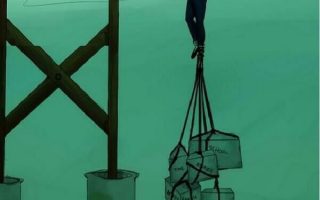The Actor-Observer Effect is a stipulative Psychology term. It relates to the tendency all human beings seem to have by neurotypical nature to attribute the behavior of others to internal causes while attributing one’s behavior to situational causes.
In layman’s terms related to Narcissistic Abuse recovery, the idea comes into play when an abuse victim sees their Abuser’s behavior as stemming from their own nature. That’s not a problematic armchair diagnosis assumption unless one errantly presumes that A) the victim cannot behave abusively toward their self-perceived captor.
Victims tend to behave proportionally in response to the abuse they have suffered. Yet, those with unhealthy levels of entitlement thinking will tend to presume they are off the moral hook for any bad behavior they engage in, blaming the Abuser for provoking them.
When discussing the Actor-Observer effect with Abusers, Enablers, Targets, and Collateral Damage Victims, it is important to teach gray rock skills. When any human is taught how to stop themselves from reacting to social stimuli without first learning to observe, take note, and reflect later, they are in a position of much greater advantage when it comes to controlling blurting and other impulsive, irrational behavior.
Victims who develop Collapsed Narcissist personas tend to give back as much or more abuse than people dish out who are abusing them. Their justification, minus self-reflective ability, tends to be to blame the provocateur.
Blame shifting is a narcissistic abuse habit. Accepting personal responsibility for remaining socially enmeshed in a toxic dynamic by choice is not something a toxic thinker is likely to do.
For that reason, many claim that the stronger predators in their life are bad or morally deficient by nature while victims who perpetrate abuse (rather than simply take it) are inclined to feel an absence of moral conscience about their behavior based on the presumption that they are entitled to abuse other people simply because they themselves have been or are being abused.
The circular logic trap of making ad hominem attacks on the character of overt social predators while granting the right for neurotypical people to abuse without conscience or moral civic repercussion is reflected in the Actor-Observer Effect and phenomenon.
In order to avoid the trap, it’s essential to claim ownership of both the choice to stay as well as to participate in an ongoing relationship with a suspected socially abusive and physically aggressive vertical thinker while still holding them socially responsible for their actions as a provocateur, baiter, or situational abuser.
« Back to Glossary Index



